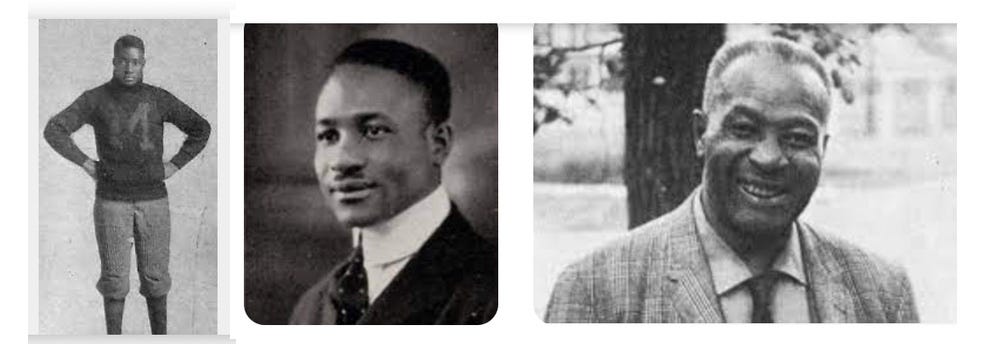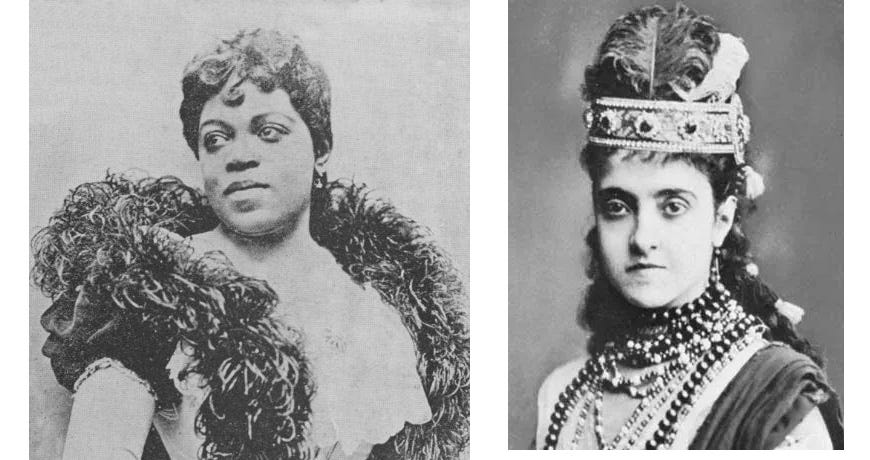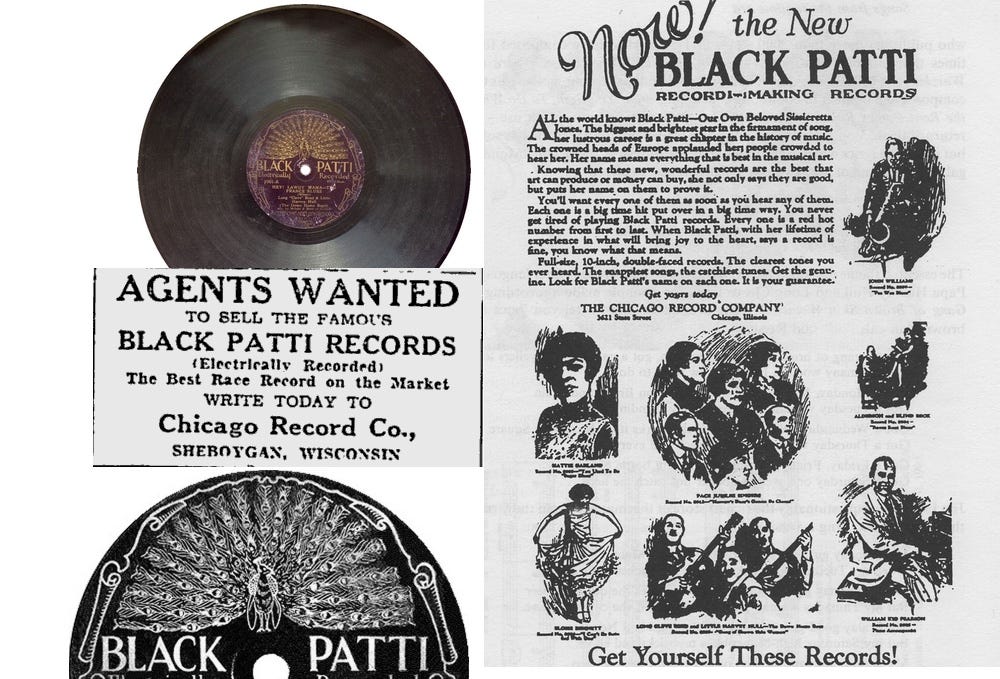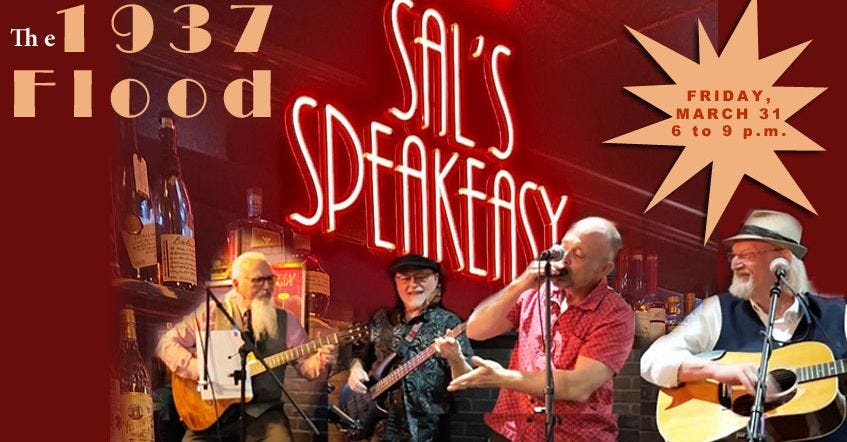It was April 1927 when a pair of blues singers from Mississippi named Little Harvey Hull and Long Cleve Reed walked into a Chicago studio to record the first of a half dozen tunes they’d leave there over the next few weeks.
Joining them for the session was guitarist Sunny Wilson, whose song "Hey! Lawdy Mama/France Blues" was among their first.
The trio was billed on the label as “The Down Home Boys” when the disc was released the following month by Black Patti Records, a new short-lived company created by a fascinating historical character named J. Mayo “Ink” Williams.
Ink Williams
A Brown University graduate, Ink Williams is the only man we know of who was inducted into both the National Football Hall of Fame and the Blues Hall of Fame. Besides being one of the first African American pro-football players (as part of a Chicago team in the first season of the NFL), Williams also is remembered as an important recording industry pioneer.
Starting his career producing for the fledgling Paramount Records, Williams earned his nickname because of his persuasive way of inking contracts with a wide range of original talent. Over the years, he was to work with Blind Lemon Jefferson and Ma Rainey, with Tampa Red and Georgia Tom, with Blind Blake and Ida Cox (not to mention Jelly Roll Morton, King Oliver, Mahalia Jackson, Alberta Hunter, Sister Rosetta Tharpe, Roosevelt Sykes, Sleepy John Estes and so many more).
In 1924, Williams also earned an early entry in blues annals by producing the legendary Papa Charlie Jackson's “Lawdy, Lawdy Blues,” the first successful blues record made by an African American man.
In 1927, Williams left Paramount to go out on his own by starting Black Patti Records, named after the opera singer Matilda Sissieretta Joyner Jones, who was called “Black Patti” because some thought she resembled the Italian opera singer Adelina Patti.
While Williams’ label lasted only seven months, it produced 55 records in a variety of styles, including blues, jazz and spirituals, as well as hell-fire sermons by “straining preachers” and comedy routines and popular ditties from vaudeville stars.
When the enterprise was not immediately profitable, Williams moved on to greener pastures by the end of 1927, but not before discovering a few stand-out blues acts that had moved to Chicago from the South as part of “The Great Migration.”
Among his finds in those early days was The Down Home Boys, whose two-guitar accompaniment was a blend of parlor guitar and ragtime. The trio sang blues, but much of its repertoire was from the turn of the century — before blues had become a dominant musical genre — and included ballads and medicine show material.
Back to the Song
Sunny Wilson’s “Hey! Mama” tune didn’t have the same cachet of some of the group’s other numbers — notably the guys’ “Original Stack O’Lee Blues,” which probably was a response to Ma Rainey’s version of the number, which had the young Louis Armstrong on cornet — but it did have a long shelf life. For instance, right after its Black Patti debut, it was brought out as "France Blues" on Gennett (credited to "Sunny Boy & His Pals") and again on Champion by "The Original Louisiana Entertainers.”
Then 40 years later, the song was reborn in the folk revival of the 1960s.
The Flood learned the song from the January 1964 album recorded by Stefan Grossman and Peter Siegel’s Even Dozen Jug Band. This seminal ‘60s group also featured John Sebastian, Steve Katz, David Grisman and Maria Muldaur, all friends who got to know each other during legendary jam sessions in New York’s Washington Square Park.
Later that same year, the song made another notable folk revival appearance, this time performed by Mark Spoelstra (with Fritz Richmond on washtub bass and Doug Pomeroy on washboard and kazoo) on a landmark Elektra album called The Blues Project.
Our Take on the Tune
If you hang out much with The Flood, it seems like everything we do is carefully planned …. uh, right… but actually, accident and happenstance are a couple of our good friends.
Earlier this week, for example, we got together to plan for our show tonight at Sal’s Speakeasy. As you’ll hear in this track, between songs Charlie starts singing a bit of this old 1920s song. Immediately, Randy jumps in with some great harmony. Then Sam brightens it up with his harmonica and Danny puts a bow on the whole thing with a cookin’ guitar part. And just like that the tune has inserted itself into the set list.
All that’s missing now is you. Come on down to Sal’s Italian Eatery & Speakeasy tonight, 1624 Carter Avenue in beautiful downtown Ashland, Ky., and we’ll getting you singing along on that hey-lawdy-mama-mama / hey-lawdy-papa-papa part! We play from 6 to 9. Come on out and party with us.























Share this post